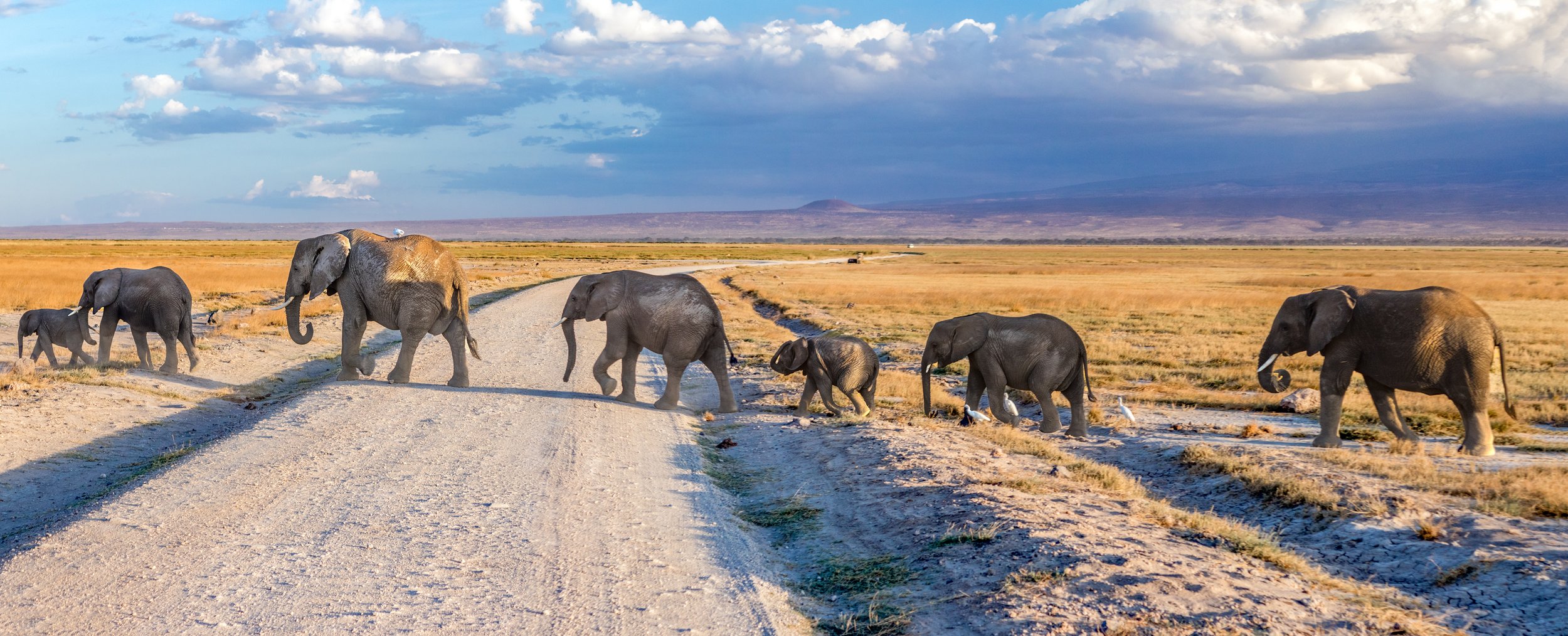
Consider the Elephants
Elephants are some of the most intelligent animals on Earth. Their brains weigh 11 pounds, much more than the brain of any other land animal.
Elephants commonly show grief, humor, compassion, cooperation, self-awareness, tool-use, playfulness, and excellent learning abilities.
Elephants demonstrate concern for members of their families; they take care of weak or injured members and grieve over a dead companion.
Adult elephants have no natural predators. The main risk to elephants is from humans through poaching and changes to elephants’ habitat.
Elephants are vital to their ecosystems. Without elephants, almost 80% of the trees in the African savannah would not exist.
Female elephants help each look after each other’s calves. Babysitting other female’s calves is important for elephant development; young females learn how to look after the young, and the calves are shown how it’s done. The survival rate of a calf greatly increases when more females are present and willing take care of it.
When the baby elephant is delivered, the sister elephants do two things: they kick sand or dirt over the newborn to protect its fragile skin from the sun, and then they all start trumpeting, a female celebration of new life, of sisterhood, of something beautiful being born in a harsh, wild world despite enemies and attackers and predators and odds.
A normal elephant lifespan is 60-80 years, but because of poaching, the average lifespan of elephants in Africa is significantly lower.
An elephant herd is considered one of the most closely-knit societies of any animal, and a female will only leave it if she dies or is captured by humans.
Elephants are known to develop strong, intimate bonds between friends and family members. There have been reports of elephants forming lifelong friendships with each other, and they even mourn the death of their loved ones. Mother elephants have been seen grieving over stillborn calves, and some elephants have even been spotted returning to, and lingering near, spots where their friends and family members died.
Elephants and humans are the only animals known to have death rituals. If an elephant becomes sick, herd members will bring it food and help support it as it stands. If it dies, they will try to revive it with food and water for a while. Once it is clear that an elephant is dead, the herd will become very quiet. They often dig a shallow grave and cover the deceased elephant with dirt and branches and will stay at the grave for days afterwards.
When our sisters are vulnerable, when they are giving birth to new life, new ideas, new ministries, new spaces, when they are under attack, when they need their people to surround them so they can create, deliver, heal, recover . . . we get in formation. We close ranks and literally have each others’ backs.
One who has unreliable friends soon comes to ruin,
but there is a friend who sticks closer than a brother.
(Proverbs 18:24)
